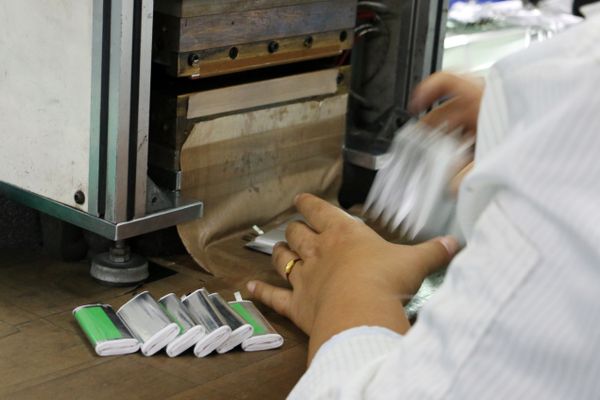BEIJING, Feb 4 — China today announced a wide range of measures targeting United States businesses including Google, farm equipment makers and fashion brand Calvin Klein’s owner, minutes after additional US tariffs on Chinese goods took effect.
The measures were announced as Beijing also slapped tariffs on some US products such as coal and gas in a rapid response to the new duties on Chinese goods imposed by US President Donald Trump, and marked escalating trade tensions between the world’s two biggest economies.
China’s Commerce Ministry said it had put PVH Corp, the holding company for brands including Calvin Klein and Tommy Hilfiger, and US biotechnology firm Illumina on its “unreliable entity” list.
It said the two companies took what it called “discriminatory measures against Chinese enterprises” and “damaged” the legitimate rights and interests of Chinese companies.
Companies added to the blacklist can be subject to fines and a broad range of other sanctions, including a freeze on trade and revocation of work permits for foreign staff.
Separately, China’s State Administration of Market Regulation said Google was suspected of violating the country’s anti-monopoly law, and it had initiated an investigation into the company in accordance with the law. It did not offer any further details on the investigation or on what it alleged Google had done to breach the law.
Google products such as its search engine are blocked in China, but it works with local partners such as advertisers in the country.
Google, PVH and Illumina did not immediately respond to requests for comment outside regular US business hours.
PVH had already been under scrutiny from Chinese regulators over “improper” conduct related to the Xinjiang region.
China’s Finance Ministry also announced 10 per cent tariffs on farm equipment and some autos that could impact US firms such as Caterpillar and Deere & Co.
The new tariffs on US products will start February 10, the ministry said.
The announcements made today ramped up trade restrictions between Beijing and Washington that had been largely limited to the tech sector under the administration of former US President Joe Biden, which sought to restrict China’s access to high-end semiconductors.
China said in December it had launched an investigation into Nvidia over a suspected violation of the country’s anti-monopoly law, a probe widely seen as a retaliatory shot against Washington’s latest curbs on the Chinese chip sector.
Intel’s products sold in China were also called for a security review late last year by an influential Chinese industry group.
Beijing also announced sweeping export restrictions today on five metals used across defence, clean energy and other industries, minutes after an additional 10 per cent tariff on Chinese goods imposed by US President Donald Trump came into effect.
The restrictions are the latest attempt by China since 2023 to weaponise its dominance in the mining and processing of critical minerals used in everything from smartphones and electric car batteries to infrared missiles and ammunition.
The new controls, which came into effect immediately, cover the metals tungsten, tellurium, bismuth, indium and molybdenum and their related products. They are used in products ranging from solar panels to artillery shells.
The Commerce Ministry said the controls were to “safeguard national security interests,” in a statement released shortly after the United States imposed a further round of tariffs on Chinese imports.
It had flagged on January 16 that it would strengthen export controls this year.
While the controls stop short of an outright ban, exports are likely to drop sharply as companies scramble to get export licenses, a process that takes roughly six weeks.
The experience of previous rounds of export restrictions suggests shipments should recover, albeit slowly, as the licenses are granted.
However, it remains to be seen whether US importers will qualify for licenses. The United States stopped mining tungsten in 2015 and has not produced refined bismuth since 1997, relying in both cases on imports.
The price of tungstate APT, a compound used in production of various tungsten products, hit its highest level since 2014 at the end of January.
An index which tracks indium prices outside China hovered near decade-high levels at the same time.
— Reuters




